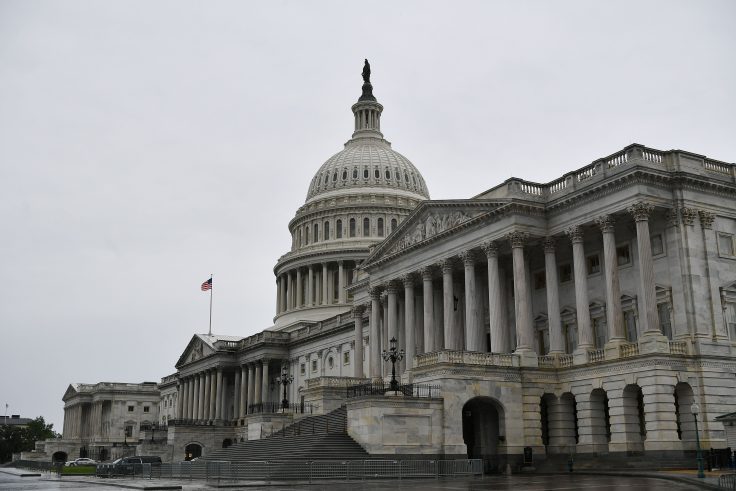The Uyghur Forced Labor Prevention Act passed the House near-unanimously on Tuesday, with only three members voting against the bill.
Reps. Justin Amash (I., Mich.), Warren Davidson (R., Ohio), and Thomas Massie (R., Ky.) were the only representatives who opposed the bill, which otherwise received resonant bipartisan support.
Supporting action taken by the Department of Homeland Security earlier this month, the bill would add congressional heft to an embargo established by the Trump administration against certain goods and products made in the Xinjiang Uighur Autonomous Region of China.
The resolution also requires that the president offer a periodic report to Congress regarding entities and individuals that knowingly facilitate human-rights abuses against Uighur Muslims, and it mandates securities issuers to disclose their relationships with firms engaged in activities related to the Uighur genocide.
Davidson told the Washington Free Beacon that his vote against the act was due to an included provision that required private enterprises to report their business activities to the Securities and Exchange Commission. Violations of the act would be enforced through the SEC rather than the Departments of State or Treasury, which Davidson also expressed concern about.
"Should this provision be removed in the Senate, I would welcome the bill being signed into law. Reports of the Uyghur genocide are appalling, and deserve international condemnation, accompanied by appropriate sanctions," Davidson said.
Massie told the Free Beacon he voted against the bill because he believed sanctions damage the people of China more than the Chinese government. "Sanctions generally do not hurt the repressive governments they claim to target," Massie said. "Instead, the burdens disproportionately fall on innocent people who are already suffering under those repressive regimes."
"Confronting the generational threat that the CCP poses should be a bipartisan issue," Rep. Michael McCaul (R., Texas), ranking member on the House Foreign Affairs Committee, said in his opening remarks on the House floor. "It is an American issue, the greatest national security threat to the United States of America. I believe this failure of perspective needs to change."
The Uighur genocide has emerged as a large bipartisan issue in the minds of Americans in recent months. Companies such as Disney have caught flak for their business dealings in Xinjiang, while Chinese state documents have revealed the extent to which the Uighur labor camps are violating human rights. Conservative estimates put the currently detained population in Xinjiang at one million.
Polling indicates that both Democrats and Republicans alike believe Washington needs to move quickly on this issue. According to a poll conducted by the Chicago Council on Global Affairs, 87 percent of both Democrats and Republicans believe America should place sanctions on Chinese officials responsible for human-rights abuses.
McCaul told his colleagues that the moral case to condemn Chinese abuses is an urgent one.
"We have a moral duty today to speak out against these horrifying crimes against humanity and against the Uighurs, and as the speaker mentioned, against the Tibetans and Christians as well, who are persecuted in the Chinese Communist Regime," McCaul said in his closing remarks. "There can no longer be business as usual with China."
Rep. Amash did not respond to a request for comment before press time.
UPDATE 2:45 p.m. ET: This article was updated to include comments from Reps. Davidson and Massie.
